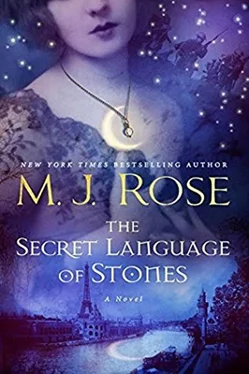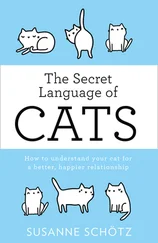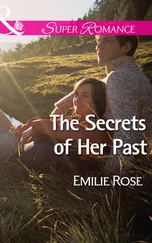Compared to our time, the Middle Ages were so unforgiving. So patriarchal. Humiliated, Abelard resigned as a teacher and became a monk. Héloïse, believing she was without other options, gave up her child and became a nun. And yet their love didn’t wither, didn’t die.
For the next twenty years, Héloïse and Abelard continued to meet spiritually and emotionally in letters, pledging their love for each other over and over.
I emerged from the subway and, seeing the green trees ahead, experienced a mild surge of anticipation and dread. Why, of all the columns, had I chosen the one that sent me to visit the place I feared the most?
Reaching the tall wrought iron gates, I stopped. The deafening noise assaulted me. I didn’t hear one voice. Not one set of words but a symphony of screaming. A horrific song of pain and sorrow and sadness. Much worse than I’d feared.
Quickly I stepped back, away from the gates. So frustrated, I wanted to cry. Why did I need to hear all this? I wanted to follow Jean Luc’s column, that’s all. Just take a walk. Would I not be able to?
Anna had reassured me the practices I was doing would help me learn to control my powers. But I needed a solution now. I tried something she had recently suggested.
Reading through some old texts, Anna found a description of a mystic, who, in order to hear long-gone voices, missed messages, and forgotten words hanging in the atmosphere, slipped into an unfocused state akin to daydreaming. Therefore, in order to stop hearing them, she suggested I needed to be totally focused on the present. A tiny pinprick of pain might be enough of a distraction to keep the noise at bay.
I pressed one of my fingernails into the fleshy part of my palm. A bit deeper, and then deeper still until it actually hurt, and then I stepped back inside the gates of Père-Lachaise. Solemn silence greeted me. With some nervousness, I took a few steps farther. The dead were not calling out. At least not yet.
This technique, albeit painful, was preferable to the horror in my ears.
In the distance, three women with a large bouquet of flowers walked toward me. I let them pass, and then, opening the sheet of newsprint, I continued reading Jean Luc’s column, wondering how many other women had come here with his words in hand. How many others had taken this same pilgrimage?
Yes, I’ve told you an unhappy love story. Not to make you cry, but rather to offer hope. Separated, love doesn’t tear, doesn’t break; bonds can grow stronger.
As you gaze at their tomb, Ma chère, think of their love and how almost eight hundred years later it still inspires. Think of us. Only separated for this short spate of time.
“God knows I never sought anything in you except yourself. I wanted simply you, nothing of yours,” Héloïse wrote.
Walk around the tomb, search for the symbols of love, of piety, of faithfulness, not so much to God as to each other.
Without trouble, I found the tomb, and when I reached it, I did as Jean Luc suggested. As I peered in, I released my finger, took away the pain. I wanted to hear Jean Luc’s voice explaining its significance.
Instantly a cacophony of voices greeted me. Not all alarming, not all intimidating or ominous, not all forlorn, but all overwhelming. I tried to hear Jean Luc in the din, but couldn’t pick him out. In my room under the Palais, there were no other dead to drown him out. But here there were too many.
It wasn’t my frustration or the two sleeping lovers on their bier that moved me to tears, but the sweet stone puppy with floppy ears asleep at Abelard’s feet.
Jean Luc’s column included another quote from Héloïse to read after I’d seen the dog.
Ma chère, don’t read the next quote from Héloïse until you’ve noticed the dog, the sculptor’s symbol of constancy.
“Let me have a faithful account of all that concerns you; I would know everything, be it ever so unfortunate. Perhaps by mingling my sighs with yours I may make your sufferings less, for it is said that all sorrows divided are made lighter.”
I pressed one hand to my chest, touched the talisman under my chemise. I’d learned the charm remained at my body temperature most of the time. Like any piece of jewelry, I wore it without noticing it. But when I thought about Jean Luc, when I reached for my amulet, it reacted-he reacted-almost immediately. The temperature change of the crystal affected me in a number of ways. I became more alert to the sounds in the ether, as if I could hear the air. And my body responded as any lover’s would, knowing the other was near. My breasts tingled and my womb clenched. As if preparing for lovemaking, my pulse quickened and my blood seemed to thicken. And the heat! The lovely heat that traveled from the skin where the talisman lay, down to the cleft between my legs.
Yes, even there, in the cemetery, touching the charm, feeling Jean Luc, I throbbed and closed my eyes and let myself dream for a moment that my lover was really near, coming to meet me. He would arrive and take me in his arms, and he would touch his lips to mine and I’d feel that same heat, but now it would be from his flesh and he would be real and my response would be met by a like response and there in the shadow of the ancient lover’s tomb he would press up against me and I would feel him, I would feel Jean Luc, and the pressure of his want all up and down the length of my body, and I would know what I wanted was what he wanted.
My reverie shattered with a lonely sound, a crow’s caw. I opened my eyes and looked up to see a large black bird against a background of gray clouds. The warmth was gone and I was conscious only of the dampness that promised yet more rain. The crow called again, circling me. I shivered. He seemed to be watching me as intently as I him. Looking back at the newspaper clipping. I read the next of Jean Luc’s instructions.
I think I will let the next grave find you. A little treasure hunt of sorts. Keep your eyes wide, Ma chère. Look for another symbol of the kind of love that, one day, I hope to prove you and I share.
Maybe because of the soft rain now falling, the solemn atmosphere, and the menacing crow, I was reluctant to venture deeper into Père-Lachaise. The shadowy cobblestone alleys looked sinister and unwelcoming. But I’d taken time off from the shop, and come so far. Certainly, the cemetery possessed its ghosts, but they wouldn’t harm me. I’d heard Adolphe Thiers, prime minister under Louis-Philippe, tugged at visitors’ clothes if they got too close to his tomb. And that strange translucent lights were visible to those who paid homage at the grave of Allan Kardec, the famous spiritualist, whereas nonbelievers were subject to the terrible scent of sulfur.
But I wasn’t there to disturb the inhabitants of the City of the Dead, and hoped they would all understand that as, accompanied by the crow, I searched out Jean Luc’s surprise.
I missed it at first and, when I reached the road marked Chemin Denon , went back and retraced my steps. There were tombs with broken bronze doors, fanciful angels atop gravestones, sorrowful statues of robed women weeping at the foot of a sepulcher. Nothing fitting the theme of Jean Luc’s column.
And then the crow cawed loudly and flew down to perch atop a solemn and simple casket-shaped stone memorial. From the distance, it appeared to be the least adorned gravesite I’d seen. Almost more interested in the bird than the hunt, I inched closer.
The rectangular coffin nestled between two larger tombs. Nothing about it commanded interest. There were no flowers, no trees, no plaque, only block letters carved into the front lip: Famille P. Legay.
The name meant nothing to me. I was just turning to go when the crow, with one last loud caw, took off, flying over my head and into a nearby tree. And that’s when I saw what Jean Luc wanted me to see. What the bird had hidden.
Читать дальше












